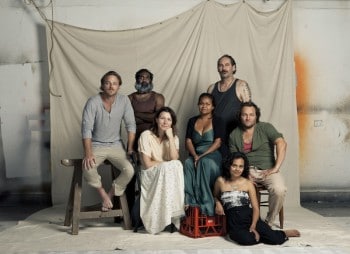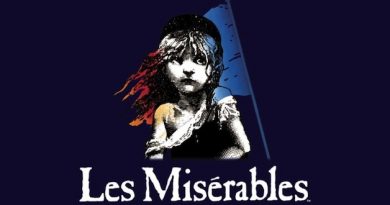Telling one of our big national stories: revealing STC’s Secret River
“Adapting a book is always about letting go” – Ben Neutze speaks with Andrew Bovell about his new latest Australian work, Secret River (adapted from Kate Grenville’s novel The Secret River) soon to premiere at the Sydney Theatre Company.

It was one of the most successful and controversial Australian books of the past decade. Now, Kate Grenville’s The Secret River is making its way to the stage in grand style thanks to Sydney Theatre Company.
The novel, which tells a story of conflict between indigenous Australians and early European arrivals, gained critical acclaim, winning the Commonwealth Writers’ Prize and being shortlisted for the Man Booker Prize.
But the book was not without its detractors. On its release in 2005, it attracted vitriolic attacks from academics and historians alike claiming that Grenville had attempted to “write history”. It couldn’t have come at a more appropriate time, following years of fierce debate about the true nature of European settlement in Australia.
For adaptor Andrew Bovell – the man behind Speaking in Tongues, the iconic play that became the wildly successful film Lantana – the big questions raised by the book seemed destined to make their way to the stage.
“As a society, we’re really engaged with our past and we’re in a process where we’re investigating what happened and how it has affected who we are today,” Bovell says.
“I think it’s a sign of our maturity as a culture that we’re now able to investigate this in a more compassionate way.”
This ambitious adaptation, directed by veteran Neil Armfield, has been three years in the making. It features a cast of 18 including Colin Moody, Ursula Yovich and Jeremy Sims. But Bovell says the key to unlocking the story is simply in the human conflict between the two cultures.
Grenville’s book was told from a mainly European perspective and the experiences faced by those new to a completely unfamiliar land, but the play sheds greater light on the indigenous experience.
[pull_left]Adapting a book is always about letting go[/pull_left]
For Bovell, this was essential in finding the drama needed to explore the big questions Grenville’s work raises. As the adaptor, he says his biggest challenge was taking the characters’ internal moments and bringing them into the external world of theatre.
“Adapting a book is always about letting go,” he says.
“You can’t simply replicate the literary form onstage. You’ve got to find meaning through the drama between the people onstage.”
To give full effect to the indigenous perspective, the Darug characters actually speak exclusively in Darug language onstage, and a large chunk of the book set in England has been cut. Ursula Yovich also appears as a narrator figure called Deerubbun, which is the Darug name for the Hawkesbury River, the setting of the play.
The play substantially departs from the book itself, but Bovell believes fans of the book will be pleasantly surprised with the changes made. The creative team even has the tick of approval from Grenville herself.
“Kate has been very open with it. She said ‘you have to discover it anew and retell it in your own way,’” Bovell says.
“She’s come in and seen a run, read the script and attended a few meetings, but she’s given us the room to do what we need to do. She came in yesterday and said ‘I feel like I’ve been heard’, and that meant a lot to us.”
As the opening work in Sydney Theatre Company’s 2013 season and one of the highlights of the Sydney Festival, Bovell is sure Grenville’s book is getting the attention it deserves.
“It’s really to the Sydney Theatre Company’s credit that they’ve been prepared to put so many resources into telling this story. I think it’s a big recognition that this is one of our big national stories that needs to be told.”

